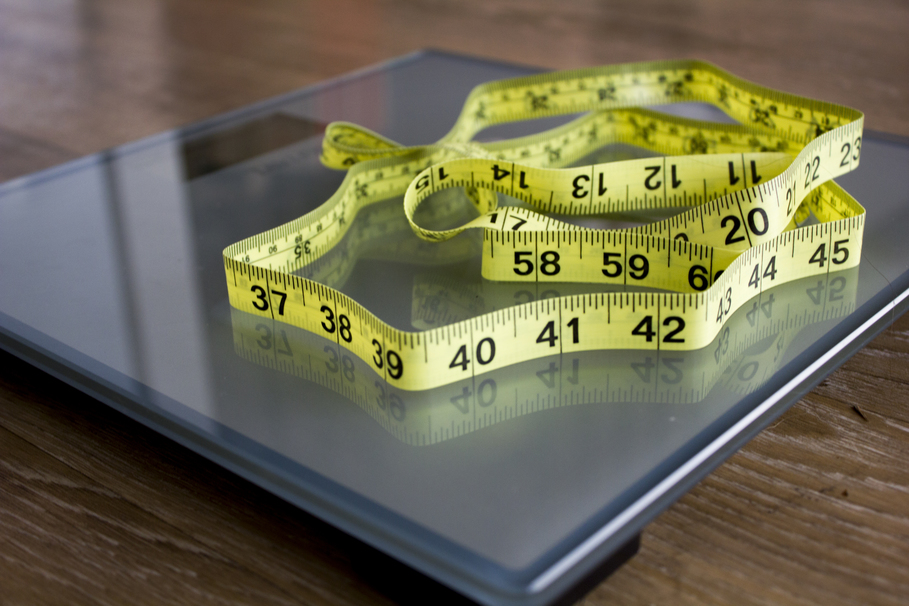As a college student, our health is something we are constantly thinking about. Whether it is avoiding a night out because we don’t want those calories from one too many beers, we’re regretting those drunchies, or we obsess over going to the gym because ate pizza in the dining hall for dinner. It is something our lives revolve around every day.
As I continue my education as a Dietetics student, I begin to become more against dieting and more about mindful eating. Mindful eating is the idea of leaving behind the guilt and regrets that many Americans feel as they try out different diets or eliminating foods from their bodies, and instead eat smaller portion sizes with more awareness and appreciation of what you are putting into your body.
When I read Mireille Guiliano’s book, “French Women Don’t Get Fat.” It inspired me to take up mindful eating and ditch fad diets for good. This non-dieting book allows you to look at food in a new light and learn to eat with intention, as well as learn to love new foods and the experience that comes with them.

As a college student, I have personal insight into different types of eating disorders first hand and how prevalent they are in today’s society. Something people don’t realize is that eating disorders can manifest in many different ways. Just because someone is not starving themselves does not mean they aren’t experiencing some type of eating disorder, or has had a bad relationship between themselves and their health.
Orthorexia Nervosa has been a popular topic in the nutrition world lately. The NEDA explained it as “Those who have an unhealthy obsession with otherwise healthy eating, it is a term that literally means a fixation on righteous eating.” A problem with uneducated healthy eating starts fads like people deciding to do things such as go gluten free or dairy free because they want to lose weight, but unless this is something that makes you sick, it is not necessary.
These fad and elimination diets are not the way to become healthy. Eating healthy means a lot of things to a variety of people, but what being healthy should be is enjoying the food you eat, eating wholesome ingredients, learning where the food is coming from, and allowing yourself to indulge in moderation. Food is something that we take for granted and should be appreciated and shared.

I’ve been lucky enough to experience a nutrition degree that includes an emphasis on culinary arts. With this culinary experience, I have begun to love where my food is coming from and appreciating all the work that goes into it. Food is an experience. Don’t get me wrong, I overindulge from time to time, but I like to overindulge by going to the market and picking out the best local foods I can find and cooking a killer meal with plenty of leftovers.

No matter what type of eating disorder or diagnoses someone is dealing with, all of these are very serious issues that affect a significant amount of people in our society today. These need to be talked about more. These need to be attended to more. If someone is becoming obsessed with being healthy, do not encourage it by complimenting the changes in their body.
I will admit, I have had my fair share of regretting everything I eat and hating myself for it right after I enjoy a FAT cheeseburger and fries, but that is not going to make you gain 5 pounds tomorrow. I have also eliminated things I love from my diet because I think it will make me healthier, but sometimes I just need a big brunch on a Sunday morning with my roommates.

I have slowly learned to cook things from scratch and eat them in smaller portions, or add some greens to my cheeseburger to add something beneficial to it. Don’t forget, just like eating can become an unhealthy obsession, so can working out. Everything should be done to be enjoyed with a purpose.
Ways to be more mindful of your health:
1. Read, read, read.

Start by reading with “French Women Don’t Get Fat,” and educate yourself. One way to make sure the stuff you are reading is accredited is acknowledging who is writing it.
2. Work out healthily.

Exercise should be something you enjoy, not something you do to lose weight. Find workouts that allow you to feel good about yourself.
3. Redefine “Healthy.”

Losing weight does not mean you are healthy. The World Health Organization defines health as “a state of complete physical, mental and social well-being.”
4. Understand eating disorders.

Eating disorders come in all different shapes and sizes and they are a serious issue. Everyone struggles with food at some point, but learn to make it something fun and enjoy it as a whole experience.
5. Value what you eat.

Eat mindfully and cook from scratch. Eat with intention and enjoy what you are putting into your body. You really are what you eat.
6. Treat yo’self.

It is okay to indulge in moderation, it is good for the soul.
Healthy, doesn’t always mean happy. Find the right balance for you.


